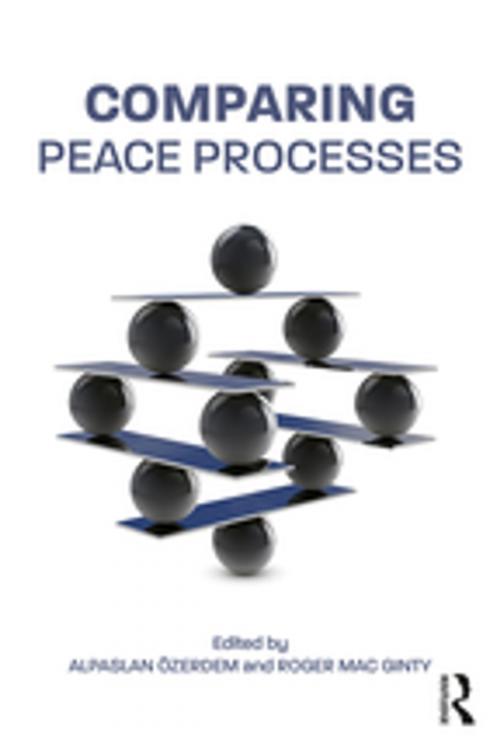Comparing Peace Processes
Nonfiction, Social & Cultural Studies, Political Science, International, International Security, International Relations| Author: | ISBN: | 9781315436593 | |
| Publisher: | Taylor and Francis | Publication: | March 18, 2019 |
| Imprint: | Routledge | Language: | English |
| Author: | |
| ISBN: | 9781315436593 |
| Publisher: | Taylor and Francis |
| Publication: | March 18, 2019 |
| Imprint: | Routledge |
| Language: | English |
This book offers a comparative survey of 18 contemporary peace processes conducted by leading international scholars.
There is no standard model of peace processes and all will vary according to the context, type of conflict, timing, national and global economic climate, and factors like natural disasters. Therefore, making comparisons between peace processes is difficult, but it is beneficial – indeed, imperative – and is the principal motivation behind this volume. What works in one context may not work in another, but it can be modified and adapted to fit another context.
The book is structured to maximise comparison between processes, and the case studies chosen are topical and span the major regions of the world. The concluding chapter systematically compares the case studies around 11 variables that cover the conflict context, peace process procedures, the responsiveness of the peace process to demands, and levels of participation and inclusion. Each peace process is then given a numeric score according to each of these variables, and the book thereby reaches judgements on whether each case can be termed a ‘success’ or a ‘failure’.
This book will be essential reading for students of peace studies, conflict resolution, war and conflict studies, security studies, and IR.
This book offers a comparative survey of 18 contemporary peace processes conducted by leading international scholars.
There is no standard model of peace processes and all will vary according to the context, type of conflict, timing, national and global economic climate, and factors like natural disasters. Therefore, making comparisons between peace processes is difficult, but it is beneficial – indeed, imperative – and is the principal motivation behind this volume. What works in one context may not work in another, but it can be modified and adapted to fit another context.
The book is structured to maximise comparison between processes, and the case studies chosen are topical and span the major regions of the world. The concluding chapter systematically compares the case studies around 11 variables that cover the conflict context, peace process procedures, the responsiveness of the peace process to demands, and levels of participation and inclusion. Each peace process is then given a numeric score according to each of these variables, and the book thereby reaches judgements on whether each case can be termed a ‘success’ or a ‘failure’.
This book will be essential reading for students of peace studies, conflict resolution, war and conflict studies, security studies, and IR.















